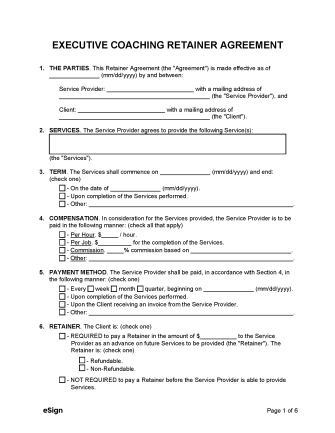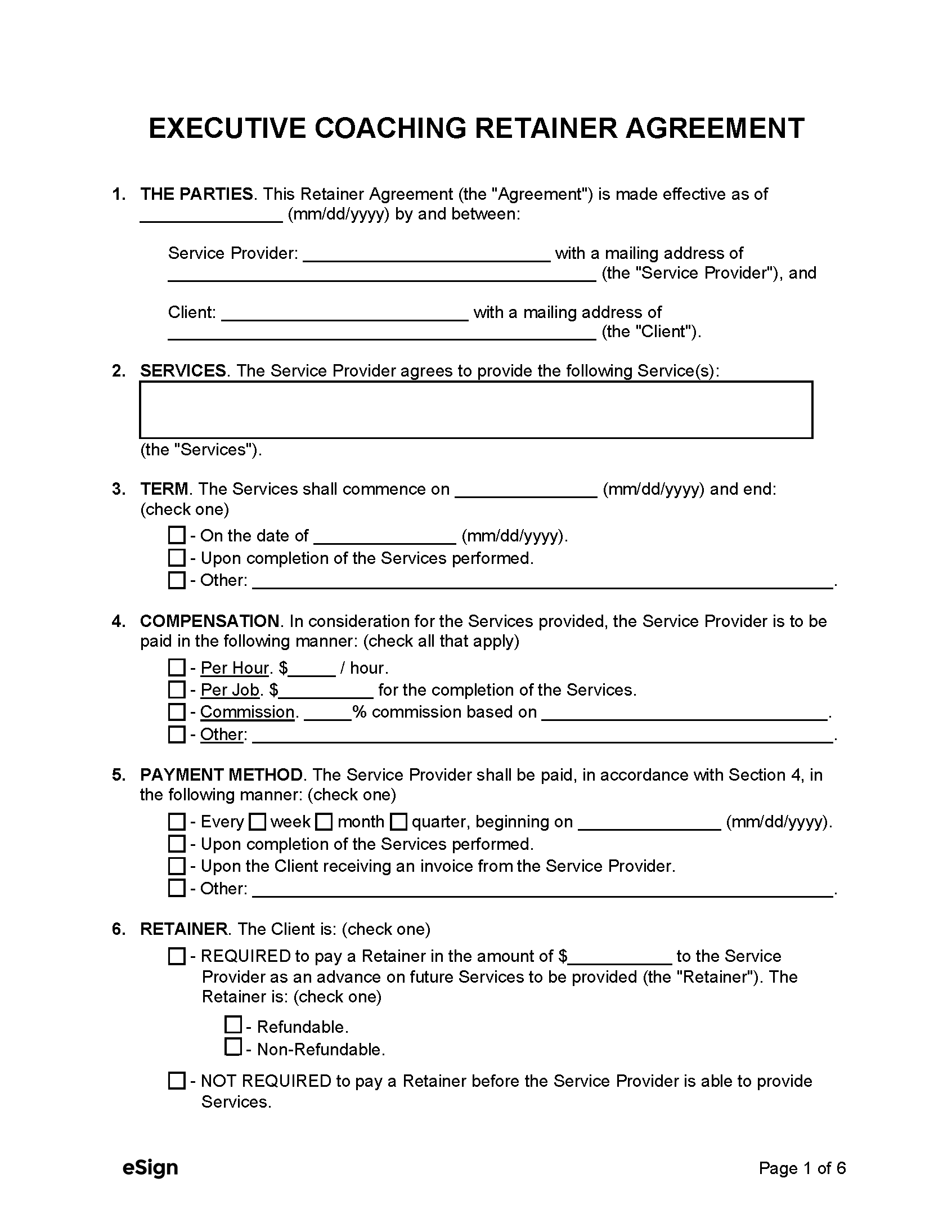What the Agreement Includes
An executive coaching retainer agreement contains numerous provisions that help ensure a straightforward and successful coaching relationship:
- Services Being Retained – The services the client will receive from the coach.
- Contract Term – When the coaching relationship begins and the date (or event) upon which it terminates.
- Payment – The executive coach’s hourly rate, flat fee, or other form of compensation.
- Retainer Fee – The amount the client must pay to retain the coach’s ongoing services. This section also specifies whether the retainer fee is refundable.
- Expenses – The service expenses the client agrees to reimburse to the coach.
- Confidentiality Requirements – The coach’s legal obligation to maintain the confidentiality of the client’s business information.
- Contract Termination – The procedures for terminating a retainer agreement before the parties fully perform their contractual obligations.
- Independent Contractor Status – Identifies the executive coach as an independent contractor and not the client’s employee.
How the Retainer Fee Works
A retainer fee is a down payment that secures the future services of an executive coach and contributes to their total compensation.
If the coach’s service charge exceeds the retained amount, the difference will be billed to the client. However, if the coach works less than anticipated, the remainder of the retained funds will be returned to the client, provided the fee is refundable.
Sample
Download: PDF, Word (.docx), OpenDocument
EXECUTIVE COACHING RETAINER AGREEMENT
This Retainer Agreement (“Agreement”) is by and between [SERVICE PROVIDER’S NAME], hereafter referred to as the “Service Provider,” and [CLIENT’S NAME], hereafter referred to as the “Client.”
1. SERVICES. The Service Provider agrees to provide the following services to the Client: [DESCRIBE SERVICES] (“Services”).
2. COMPENSATION. In consideration for the Services to be provided, the Client agrees to pay the Service Provider $[AMOUNT] per hour.
3. RETAINER. As an advance on future Services to be provided, the Client is required to pay the Service Provider a retainer in the amount of $[AMOUNT] every ☐ week ☐ month ☐ quarter, beginning on [DATE] (“Retainer”). The Retainer is: (check one)
☐ – Refundable.
☐ – Non-refundable.
4. NON-DISCLOSURE. The Service Provider agrees not to disclose or misuse the Client’s proprietary or confidential information without prior written consent, except as needed to perform the Services, recognizing that such actions would cause irreparable harm to the Client.
5. EXPENSES. The Client shall only be responsible for the following expenses: [LIST EXPENSES TO BE PAID BY CLIENT].
6. INDEPENDENT CONTRACTOR STATUS. The Service Provider is an independent contractor, and neither the Service Provider nor their employees or contract personnel are or shall be deemed the Client’s employees.
7. TERMINATION. Either party may terminate this Contract upon [#] days’ written notice.
IN WITNESS WHEREOF, the parties have executed this Agreement on [MM/DD/YYYY].
Service Provider’s Signature: ____________________
[SERVICE PROVIDER PRINTED NAME]
Client’s Signature: ____________________
[CLIENT PRINTED NAME]

